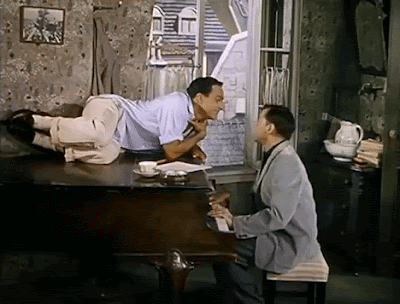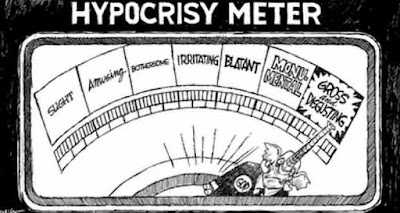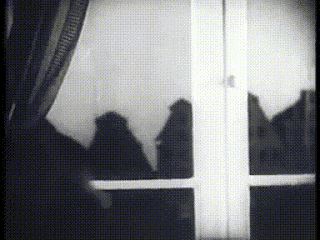Friends: I am so sorry to leave you wondering. Today is the first day I’ve felt normal and rested. I had a six day long manic episode just like the one that got me thrown out of rehab two months ago. Sober both times. This whole episode was frankly terrifying, and I’m trying to do what I can to monitor it until I can get people diagnosed and medicated. It’s good to know I’m capable of going off the reserve when perfectly sober. Soon as I feel fully settled I’ll be in touch. Love, G.
To all I may have disturbed over the weekend, my sincere apologies. I experienced a full blown manic episode, three to five days of unfettered weirdness — and I need to go to Joe Brant hospital to apologize to all female psychiatric staff, whom I flirted with like a dirty old wanker — my second in two months. I can now add bipolar disorder to to my mental illness repertoire. Seeking treatment, needless to say.
But I am otherwise good, and
love you all for your kind and understandably perplexed responses. As you all
well know I NEVER flirt.
Crazy about y’all,
If anyone knows anybody in
the
The care and patience I
received during my long night of gonzo batshit free fall was AMAZING. I regaled
the cops who delivered me to psychiatric emergency — named, God love them,
Scott and Geoff — with the dirtiest movie true life trivia I could — and boy
did I. I was like the Groucho Marx of psychiatric emerg.
As I was escorting them out —
until the psychiatric staff pulled me back inside — I tried to hug them, which
they warmly refused. I offered a handshake, and Scott said “How about a fist
bump, Geoff?”
And as for Jenn, the gorgeous
and deeply empathetic psych muse, whom I fell deeply and obviously in love with
inside of three seconds: thanks for the only memory of this whole shitshow that
I cherish. That and Scott and Geoff’s fistbump.
Love y’all
On the eve of my 62nd
birthday, something of a re-birth announcement...
The mania I've been
experiencing for the past few weeks continues. I am making every effort to
recognize and do what I can to manage it, and with some success provided I
stick to certain things. Among these: my online presence. It's become baldly
obvious to me that I must reduce my internet activity considerably, and that's
why I write to you all: if you're wondering how I'm doing, where I am, if I am,
etc., it may take a day or two before you hear from me.
I'll spare you the thinking
behind this -- god only knows, but makes sense to me -- but I also wanted to
let everyone know that this is a struggle that I absolutely refuse to go
through alone. And by that I mean going public. Once I am finally able to trust
my thoughts again -- or even to corral them better -- I've got a plan.
I want to put this before
everything. I want to re-emerge from this as a public activist. I've already
got a semi-public profile, and it seems obvious and necessary that I try to
harness this to my own recovery and public function. I know there's a book in
this, but also a specialized website (under construction already), but possibly
a documentary, podcast and as many public speaking opportunities as I can book.
I mean, who wouldn't want
this: the world's first Bipolar standup addict terminally unfiltered movie
critic?
See? This mania is K-razee.
Much love to y'all and more
to come.
Really, the only thing I object to is going so wildly public that no one knows how to react. This is a man who for years was a respected film critic in Toronto, with a rather ironic specialty: interpreting the subject of mental illness as it appears in popular culture, especially movies.
I have nothing whatsoever against going public, advocating, speaking publicly, etc. but as someone who has had multiple manic episodes myself, I can say for sure that your judgement is just a TEENSY bit off in the middle of this kind of mental hurricane. Huge upgusts of energy, talking a mile a minute (and constantly interrupting), being unable to eat or sleep, grandiosity, incredibly expensive shopping sprees, sexual acting-out which can later be quite embarrassing. . . it's pretty wild, folks, and to see it play out in public like this is kind of painful.
Since these posts back in 2019, I've seen very little from him except stills that appear to be screenshots of movies, most of them prior to 1970. Googling didn't turn up much except some articles written ten years ago. The thing about all this is, if you wanted to raise awareness about - say - heart disease, you wouldn't try to do it in the midst of a heart attack. This is no less dangerous. But no one told him to just sit down for a bit until things had stabilized.
What shocked me the most is that, after being kept overnight in the hospital, he was discharged the next day without referrals to a doctor or psychiatrist, and apparently just one bottle of medication. When he got to the last pill, he took it with a flourish and a grand announcement, to much applause from his followers. Yes, this WAS a performance of sorts, and he seemed giddy in the middle of it. But I also know from bitter experience that the very worst thing someone with bipolar mania can do is to suddenly go off their meds.
Why wasn't anyone there to help him - I mean, really HELP him, instead of doing what his Facebook "friends" did: cheer his mania on, tell him "you've got this" (he didn't), give him bizarre advice on what meds or (worse) quackish herbal remedies he should be taking? The man was desperately ill, and the only followup I could find was a Twitter post about an event he was going to speak at called "But That's Another Story". The title of his talk was How I Became a Sex Addict.
Hey, people can share all they like, but sooner or later the dust will settle and the sufferer will want to put together some semblance of normalcy. I hope he's OK, but the fact I don't see anything from him on Facebook now except the odd photo (and even these stopped in October) does make me wonder.
Going public is fine, but you can't take it back. This is especially true in the age of the internet, in which there is no such thing as "delete". You risk becoming a poster child, and the illness can become your entire identity and subsume whatever dreams you ever had for yourself. And I really think you have to do your advocacy from the perspective of real mental health and recovery. You can't stand up to give a speech if you don't have both feet on the ground.




.jpg)
.jpg)













































